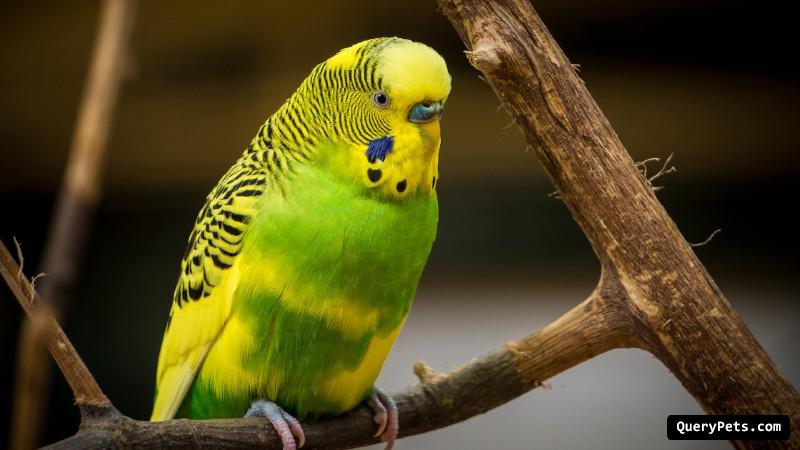Why Are My Parakeet’s Feathers Falling Out?

Parakeets, also known as budgerigars, are delightful and popular pet birds known for their vibrant colors and cheerful personalities. However, one common problem that many parakeet owners face is feather loss.
Healthy feathers are crucial for a parakeet’s well-being and behavior, and understanding the reasons behind feather loss is essential for providing proper care.
In this article, we will explore the possible causes of parakeet feather loss and provide guidance on how to address this issue effectively.
Why Are My Parakeet’s Feathers Falling Out?
Parakeet feathers can fall out for various reasons, including nutritional deficiencies, environmental factors, parasites and infections, stress, behavioral factors, and underlying health conditions. Identifying the specific cause requires a closer examination of the bird’s overall health, environment, and lifestyle.
Understanding Parakeet Feathers
Parakeet feathers play a vital role in their overall health and well-being. They provide insulation, enable flight, aid in communication, and contribute to the bird’s physical appearance.
Parakeets undergo a molting process, shedding their old feathers and growing new ones to maintain feather quality and functionality. Molting is a natural and necessary process for feather renewal, and it typically occurs once or twice a year.
Common Causes of Feather Loss
Nutritional deficiencies can significantly impact a parakeet’s feather health. A poor diet lacking essential nutrients, such as vitamins, minerals, and proteins, can lead to brittle feathers, feather loss, and delayed molting.
To promote healthy feathers, it is crucial to provide a well-balanced diet consisting of high-quality commercial parakeet pellets, fresh fruits and vegetables, and occasional treats.
Environmental Factors
Environmental factors also play a significant role in parakeet feather health. Excessive dryness or humidity can cause feathers to become dry, brittle, and prone to breakage.
Improper lighting, temperature extremes, and drafts can stress the bird’s immune system and negatively affect feather growth.
Maintaining a suitable environment with moderate humidity, appropriate lighting, and a stable temperature range promotes healthy feather growth.
Parasites and Infections
Parasites, such as mites and lice, can cause feather loss in parakeets. These tiny pests can infest the feathers, irritate the bird’s skin, and lead to excessive scratching or feather plucking.
Regular veterinary check-ups are essential to detecting and treating parasite infestations promptly. Additionally, infections caused by bacteria or fungi can also contribute to feather loss.
Any signs of abnormal feather loss should be investigated by a veterinarian to determine the underlying cause and provide appropriate treatment.
Stress and Behavioral Factors
Stress and anxiety can manifest in parakeets as feather plucking or self-mutilation. Changes in routine, a lack of mental stimulation, social isolation, or the presence of other aggressive birds can trigger stress in parakeets.
Creating a supportive environment with regular interaction, providing toys for mental stimulation, and maintaining a consistent routine can help minimize stress and promote healthy feather growth.
Health Conditions and Diseases
Feather loss can be an indication of underlying health conditions and diseases in parakeets. Feather cysts, infections, hormonal imbalances, and liver or kidney disorders are some examples of conditions that can affect feather health.
It is crucial to consult a veterinarian for an accurate diagnosis and appropriate treatment. Prompt veterinary care can often alleviate the underlying condition, leading to improved feather regrowth.
Preventing and Addressing Feather Loss
Prevention is always better than cure when it comes to feather loss in parakeets. To maintain healthy feathers, bird owners should provide a balanced diet rich in essential nutrients, offer regular baths or misting for feather hydration, and ensure a suitable environment with proper lighting and temperature.
Grooming techniques, such as gently removing debris or damaged feathers, can promote healthy feather growth. If feather loss persists or worsens despite preventive measures, seeking veterinary assistance is crucial.
A veterinarian can conduct thorough examinations, perform necessary tests, and recommend appropriate treatment options tailored to the specific situation.
Conclusion
Parakeet feather loss is a common issue faced by bird owners, and understanding its causes is essential for proper care and the well-being of the bird. Nutritional deficiencies, environmental factors, parasites and infections, stress, behavioral factors, and underlying health conditions can all contribute to feather loss in parakeets.
By providing a healthy diet, a suitable environment, mental stimulation, and regular veterinary care, bird owners can prevent and address feather loss effectively. Remember, maintaining healthy feathers is not only crucial for the bird’s physical health but also plays a significant role in its overall happiness and behavior.
Stay attentive, provide a nurturing environment, and seek professional advice when needed to ensure the well-being of your beloved parakeet companion.
